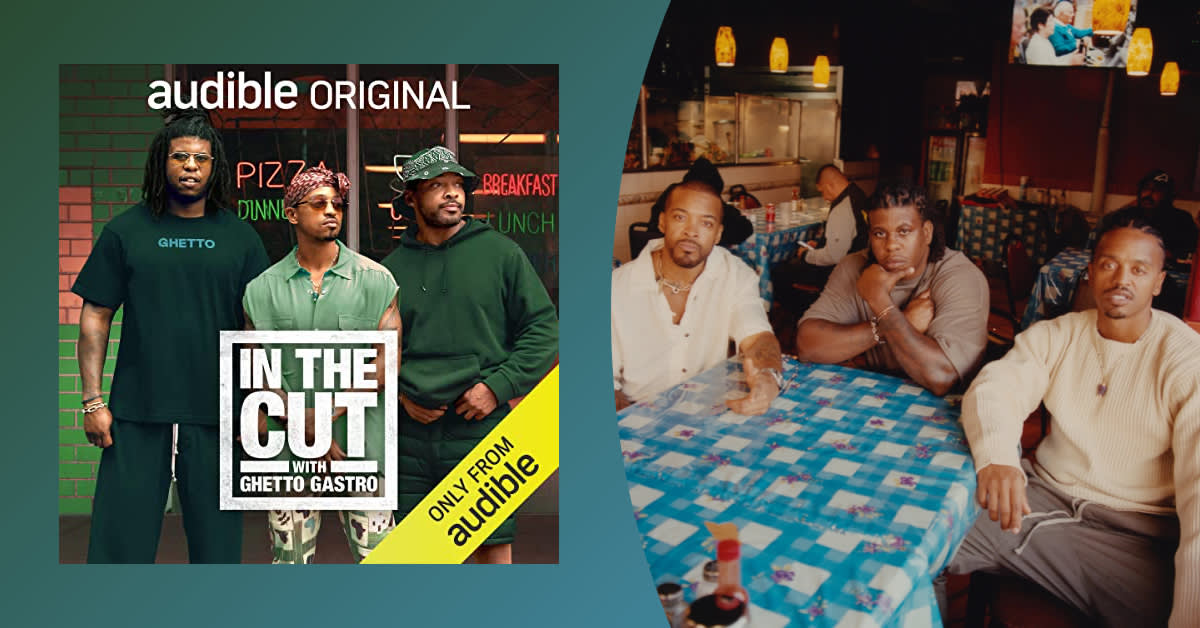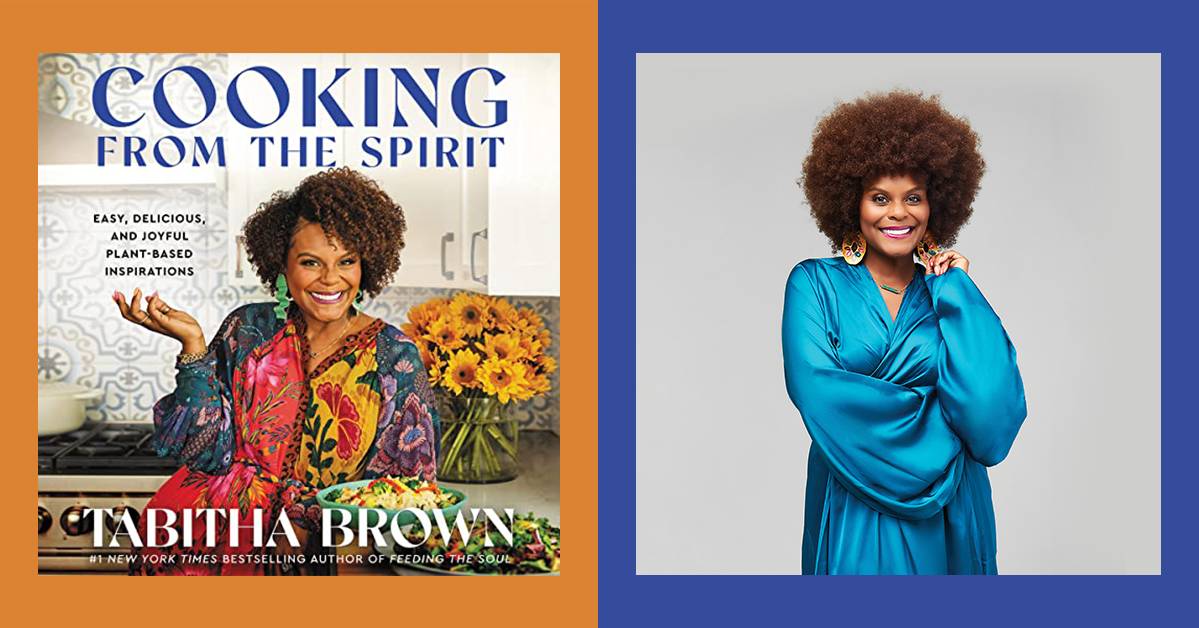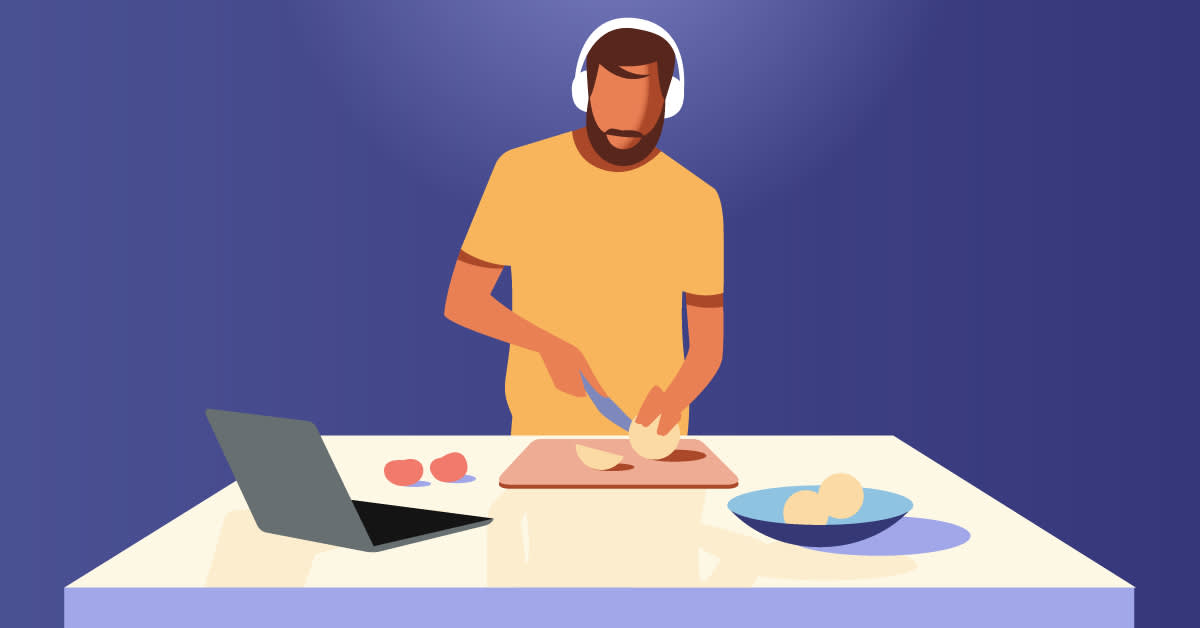Jon Gray, Lester Walker, and Pierre Serrao of the culinary collective Ghetto Gastro would like to see less chewing of fat in the Bronx, and more healthy answers on the table surrounding food and food issues in Black and Brown communities. At the same time, they recognize and respect the diversity of cuisines found in their hometown borough. Their new Audible Original podcast, In the Cut with Ghetto Gastro, pays homage to the food, people, and culture they know so well and want to bring to the world.
Audible: In talking about lack of access to good, fresh food in Black and Brown communities, you said something very poignant, with regards to the term “food deserts”—you pointed out how that term is misleading in that it sounds like it’s a natural occurrence. “Food apartheid” is what you called it instead. Would “food insecurity” and “urban malnutrition” fit into that category too? If not, where?
Ghetto Gastro: Access to food is and has been a race issue and a class issue. Underserved and under-resourced areas historically exist as areas of food apartheid. We don’t use the term food deserts because that implies a natural occurrence of some sort.
Food insecurity and urban malnutrition certainly fit into that category. Native American, Black, and Brown communities are among the most insecure across the nation. Look at the Hunts Point Peninsula in the South Bronx, for example, where nearly half of the residents live below the federal poverty level and have limited access to healthy food options—but it's also the home to the Hunts Point Food Distribution Center. The facility is notably the largest of its kind and a major distribution hub for wholesale meat, fish, and produce. However, because of their focus on wholesale, this limits access to the residents of the community to benefit from the hub. In turn, traffic generated by the busy hub on the nearby expressway contributes to poor air quality, affecting the increasing rates of childhood asthma and other health-related issues. In summary, the operation is benefiting, while the predominantly Hispanic, Black, and Asian community bears the burden and reaps no benefits.
When you speak of the various foods and dishes, you pay respect to the people behind the recipes, the ingredients, and share the history too. Listening to you, I’m hearing more than food according to three foodies. You border on historians, would you agree?
We have always had a real thirst for knowledge about our food history, as well as culture, so we’ll take that! Gotta stay open to soak up game. Know the Ledge!
All of you, it seems, received your Ghetto Gastro PhDs on the subject of food from growing up in the Bronx. The media isn’t always kind to the Bronx. Outside of your collective, what other wonderful things should we know about the borough?
They say: “The Bronx keeps creating it.” When we think of the Bronx, we think of home. When you say the Bronx, you’re talking about the birthplace of hip-hop, a community of diverse tongues and multilingual families, a place with a diverse food culture, the greenest borough in NYC, the New York Yankees, a.k.a. the world’s baseball team, summertime on City Island with your people. When you say the Bronx, you’re talking about a massive contributor to global culture.
When did you know that you were becoming change agents in the food world?
When we dropped "Waffles x Models" back in 2013, it was the first moment that people in niche creative industries like art and fashion started to take notice. Then we did our first international project, in the South of France. Before that, we were experimenting and hosting house parties but we really took it to the next level in 2013 with "Waffles x Models" and with "South Bronx in South France." We are really proud of the work we’re able to do with great partners such as La Morada for providing meals during the pandemic and Rethink NYC, which fed protesters across the city. We’re grateful for all of the dope brands we’ve collaborated with and that have supported the vision, but at the end of the day it’s important to us to pay it forward.
Black Power Kitchen, In the Cut, numerous articles and interviews, appliances, Netflix—what’s the next big thing for Ghetto Gastro?
With the launch of Black Power Kitchen, 2022 was a big year for us. We’re carrying that momentum right into 2023 with the launch of In the Cut. We recently curated the menu for the Recording Academy Honors Black Music Collective around the Grammys—which was an honor in itself. Next up is more global regeneration, continuing to have fun while providing inspiration for our community.





